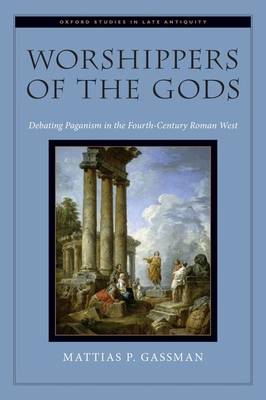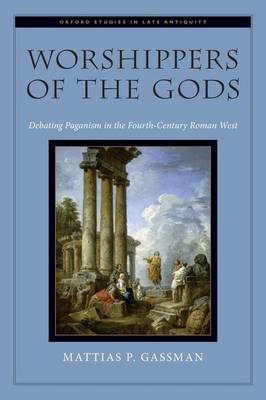
- Retrait gratuit dans votre magasin Club
- 7.000.000 titres dans notre catalogue
- Payer en toute sécurité
- Toujours un magasin près de chez vous
- Retrait gratuit dans votre magasin Club
- 7.000.0000 titres dans notre catalogue
- Payer en toute sécurité
- Toujours un magasin près de chez vous
177,45 €
+ 354 points
Description
Worshippers of the Gods tells how the Latin writers who witnessed the political and social rise of Christianity rethought the role of traditional religion in the empire and city of Rome. In parallel with the empire's legal Christianisation, it traces changing attitudes toward paganism from the last empire-wide persecution of Christians under the Tetrarchy to the removal of state funds from the Roman cults in the early 380s. Influential recent scholarship has seen Christian polemical literature-a crucial body of evidence for late antique polytheism-as an exercise in Christian identity-making. In response, Worshippers of the Gods argues that Lactantius, Firmicus Maternus, Ambrosiaster, and Ambrose offered substantive critiques of traditional religion shaped to their political circumstances and to the preoccupations of contemporary polytheists. By bringing together this polemical literature with imperial laws, pagan inscriptions, and the letters and papers of the senator Symmachus, Worshippers of the Gods reveals the changing horizons of Roman thought on traditional religion in the fourth century. Through its five interlocking case studies, it shows how key episodes in the Empire's religious history-the Tetrarchic persecution, Constantine's adoption of Christianity, the altar of Victory affair, and the 'disestablishment' of the Roman cults-shaped contemporary conceptions of polytheism. It also argues that the idea of a unified 'paganism', often seen as a capricious invention, actually arose as a Christian response to the eclectic, philosophical polytheism in vogue at Rome.
Spécifications
Parties prenantes
- Auteur(s) :
- Editeur:
Contenu
- Nombre de pages :
- 252
- Langue:
- Anglais
- Collection :
Caractéristiques
- EAN:
- 9780190082444
- Date de parution :
- 15-06-20
- Format:
- Livre relié
- Format numérique:
- Genaaid
- Dimensions :
- 160 mm x 236 mm
- Poids :
- 453 g

Les avis
Nous publions uniquement les avis qui respectent les conditions requises. Consultez nos conditions pour les avis.






